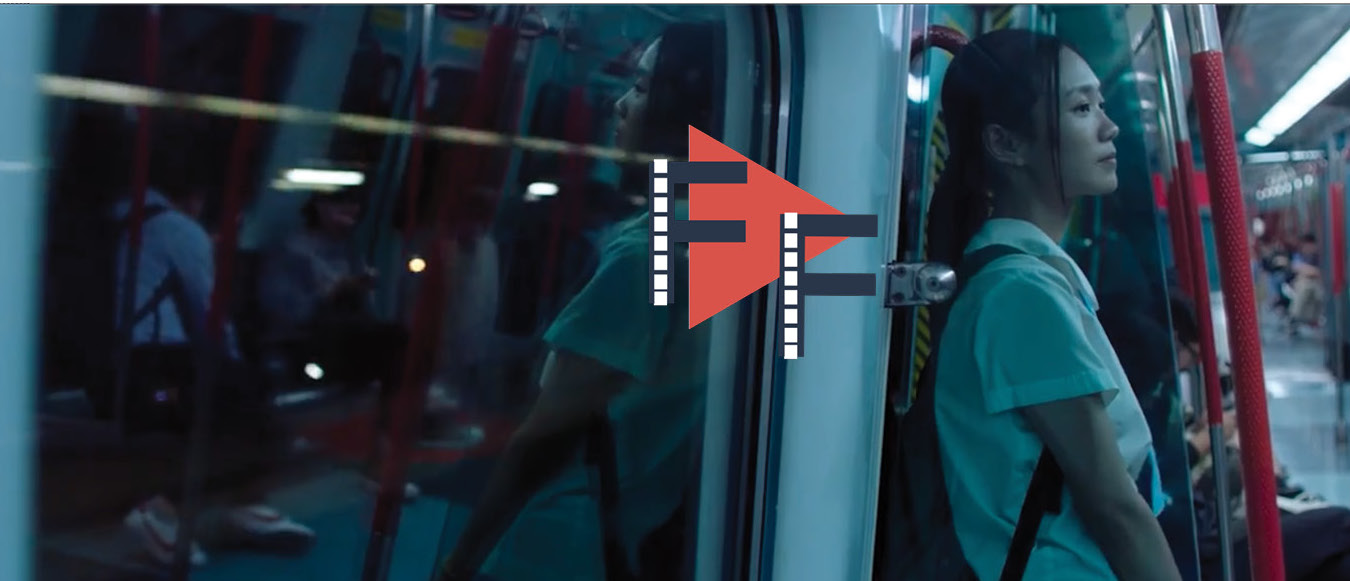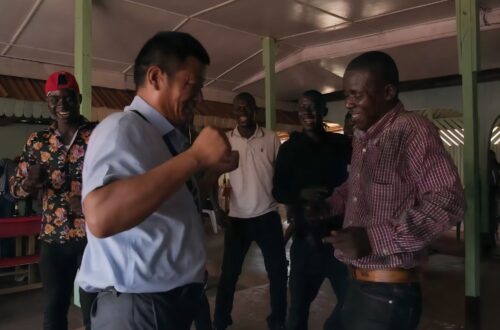‘The Crossing’: A crime-tinged teen drama that explores the Hong Kong-mainland China divide

The Crossing, director Bai Xue’s impressive film debut, is a stirring coming-of-age story set against the backdrop of crime and social inequality on the border of Hong Kong and Shenzhen.

The border between Hong Kong and mainland Shenzhen is a busy one. Crowds of people pass back and forth every day, including tourists, students, and workers. While most passersby are harmless, the border has also acted as a gateway for criminals and smugglers. Items like iPhones, which are more expensive in the mainland, are especially popular contraband. In recent years, gangs have used everything from drones to schoolchildren to smuggle smartphones through the border.
This bizarre smuggling racket provides the backdrop for director Bai Xue’s 白雪 recent debut feature, The Crossing 过春天. The film focuses on a teenage girl named Peipei, who lives in Shenzhen but goes to school in Hong Kong. Now that she’s turned 16, Peipei picks up a part-time job as a waitress at a noodle shop. Peipei plans to vacation in Japan with her friend Jo, and she wants to save up enough money for a trip during the Christmas season. (Her heart is set on finally being able to see snow.)
Peipei’s part-time job doesn’t pay enough though, and neither of her parents seem like they can help. Her dad lives far away, and her mom seems to mostly smoke, drink, and gamble. Eager to make more money, Jo’s boyfriend Hao introduces Peipei to a border smuggling gang. The group is made up of young men, but headed by Sister Hua, a middle-aged woman with purple hair. Sister Hua thinks Peipei would make a fine mule, and invites her to smuggle phones. The gang’s rules are simple: Hide the phones and pass through customs undetected. If you’re caught, say the phones are for you or your parents.
Quiet and inconspicuous, and dressed in her school uniform, Peipei pulls off her first assignment perfectly. The money starts flowing in, and Peipei is able to repeatedly pass through customs without even a second glance. As she delves deeper into the smuggling market, however, Peipei finds herself taking greater risks. Her relationship with Hao gets complicated, leading Jo to become suspicious. Sister Hua’s gang also gets bolder, demanding that Peipei smuggle guns, a serious crime that could land her in prison.
A teenage smuggler sounds like material for a pulsating thriller, but The Crossing is very much a slowly paced drama. It’s also a coming-of-age story, with the usual teenage staples. Across the film, Peipei attends a wild party, sits through a giggly sex-ed class, and juggles between dealing with her mother, her best friend, and a possible romance. She’s smart and confident, yet stuck in a depressingly isolated life. Facing adulthood on the one hand, and the law on the other, Peipei stands alone, and can’t count on anybody but herself.
A prominent part of this isolation involves Peipei’s status between the two spheres of Hong Kong and Shenzhen. Legally, she was born in Hong Kong, and has a Hong Kong ID. She speaks Cantonese, and her homework is in traditional Chinese and English. While she might live with a single mom in a small apartment, from the perspective in Shenzhen, Peipei is a privileged girl. Yet compared to her classmates across the border, there’s nothing privileged or extraordinary about her.
Jo’s family, for example, can send their son off to study abroad. During one scene, when Peipei visits Jo’s aunt’s house, she tells Jo that it’s a massive place. As Peipei marvels over the aunt’s pool, an unfazed Jo replies, “You say that every time you come here.” This tension between a life spent in two different worlds is emphasized on the technical side of the film as well. Shenzhen appears colorless and boring, while Hong Kong dazzles with crowds, lights, and energy. For Peipei, Japan is more than just a fanciful vacation. It’s an escape from the conflicts surrounding her identity.
With The Crossing, director Bai Xue has made a wonderful debut. A movie touching on the divisions between Hong Kong and mainland China might be expected to be politically charged, yet Bai handles her themes subtly. As a whole, the film is unabashedly low-key. It doesn’t care to exaggerate the tribulations of being a teenager, or to pump up its smuggling subplot with adrenaline and melodrama. It’s a slow burn, but given its interesting, layered main character, a worthwhile one.
Film Friday is The China Project’s film recommendation column. Have a recommendation? Get in touch: editors@thechinaproject.com





